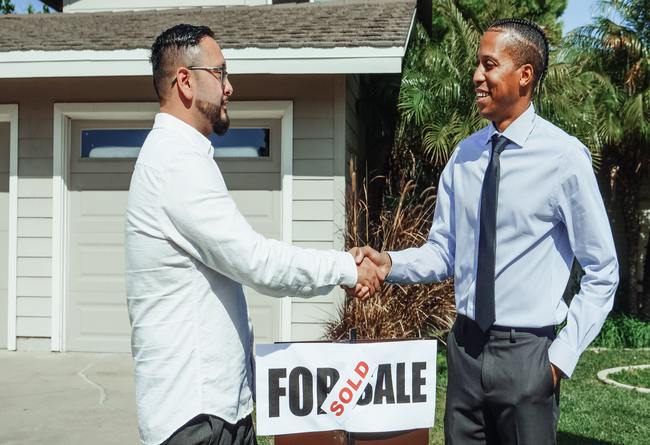
Are You Selling Property With a Lien?
Are you selling property with a lien? Property liens can make selling your home challenging but not impossible. Liens are placed on your home if you have outstanding debts. It gives the right for a creditor to take ownership of part of your property until the outstanding amount is repaid.
Learn about the common types of liens placed on properties, how to discover if a lien has been placed on your home, and how to resolve a lien so you can sell your property.
Common Types of Liens
Home liens can be voluntary or involuntary. For example, if the bank takes out a lien when they advance a borrower a loan for a mortgage. This is a type of voluntary lien.
However, a creditor (usually a financial institution, government agency, or contractor) can file a lien with the local or state court to receive recompense if the debtor (the homeowner) defaults on their financial obligations.
There are several common types of liens placed on homes, including:
- Homeowners Association Lien
If your home is part of an HOA group, and you have failed to pay your dues or broken the terms of your HOA agreement, the HOA can place a lien against your property.
For example, if your HOA agreement states that you may not remove trees from your property and you cut them down, you can be fined per tree. A lien will be placed on your home until the debt is repaid.
- Material Man’s Lien
One of the simplest liens to resolve is a material man’s lien. If a contractor has worked on your home within the last 90 days and has not been paid, they can petition the court to place a lien on the home until they receive the outstanding amount.
- IRS Lien
The most serious lien is a tax lien from the Internal Revenue Service (IRS). Tax liens can be placed on homes due to unpaid federal taxes.
- Department of Revenue Lien
A Department of Revenue lien is another type of tax lien. It can be placed on your home if you have failed to pay your state taxes.
- General Judgement Lien
A creditor takes out a general judgment lien if a court rules that a debtor has not fulfilled their financial obligations to the creditor. For example, an ex-spouse can take out a general judgment lien on the home to receive payment for outstanding child support.

How to Discover if There is a Lien on Your Home
You generally won’t be notified if someone has put a lien on your home. However, you may be sent frequent outstanding payment reminders, Final Warning notices, or a notice that legal action has been taken, which could indicate that a lien may be placed on your home if you don’t fulfill your financial obligations.
If you suspect you have a lien on your home and plan to sell, you can easily discover what type of lien is in place. Liens are a matter of public record. So you can find out whether you have a lien on your home by checking with the county courthouse and asking the clerk to search for liens on your property.
You can also contact a title company and pay them to prepare a report on any liens on your home. Your home’s mortgage provider may also be able to discover if there are any liens aside from the voluntary mortgage lien.
How to Resolve an Outstanding Lien
Once you discover a lien on your property, there are several steps you can take to resolve the lien before selling. Ideally, you will pay off the lien before selling or dispute the lien to have it removed. If these methods do not fulfill the lien requirements, you may have to pay it off using proceeds from the sale of the property.
- Pay off debts if possible
If you have funds available, pay off the lien or liens before selling. Once the lien is fully paid off, it will be removed from your property’s title deed after a specified period.
- Take out a loan or bond
If you lack the funds to pay the lien outright, you can apply for a loan or take out a bond to pay the lienholder. Keep in mind that this option puts you in debt to an additional creditor, and you’ll need to repay the amount at a later date.
- Attempt to settle the lien
If you cannot afford to pay the lien in full, you can attempt to negotiate a partial release of the lien, or in the case of how to remove a tax lien, apply for an Offer in Compromise.
If accepted, the Offer in Compromise allows you to pay back the IRS a lower amount than you owe, effectively removing the lien. The IRS releases liens electronically to the county where the lien was initially filed.
- Find a buyer
Where you cannot afford to pay off any or part of the lien and negotiations are unsuccessful, you may need to find a buyer for your property. This can be challenging because many buyers and realtors don’t want to deal with the complexities of closing on a property with a lien on the title.
Working with a company that specializes in buying and selling distressed properties and homes with tax liens can help make the process quick and simple. If you’re selling property with a lien in Orlando, book a consultation with Meli to see how we can help.
- Dispute the lien
In cases where you do not believe the lien was applied to your property fairly, you can dispute the lien to have it removed. You can do this by recording a Notice of Contest that shortens the lienor’s time frame to foreclose on the lien to 60 days from the time of serving notice.
If the lienor doesn’t file a suit to enforce the lien within the 60-day period, the lien is automatically extinguished.
- Use proceeds to pay off the lien
Once you’ve sold your home to an interested buyer, you can use the funds from the sale to pay off creditors or tax authorities with liens on the property. When selling a property with a lien, you’ll need to organize this repayment on time so you can ensure the liens are removed from the title before your closing date.

Work with Meli to Sell Your Home
Homeowners in Orlando, FL, and surrounding areas with liens on their homes can seek help in selling their distressed property through Meli. Our team specializes in buying, listing, and helping you sell homes with tax liens and any issue complicating a sale.
We understand that sometimes you need to sell a home fast to pay back creditors or satisfy tax authorities. That’s why we promise to close on your home within 30 days if we decide we’re a good fit for your needs following the initial consultation.
To schedule a call today, contact us at (407) 305-5008 or fill out our online inquiry form.
Image Credits
https://www.pexels.com/photo/white-and-brown-concrete-bungalow-under-clear-blue-sky-210617/
https://www.pexels.com/photo/black-calculator-near-ballpoint-pen-on-white-printed-paper-53621/
